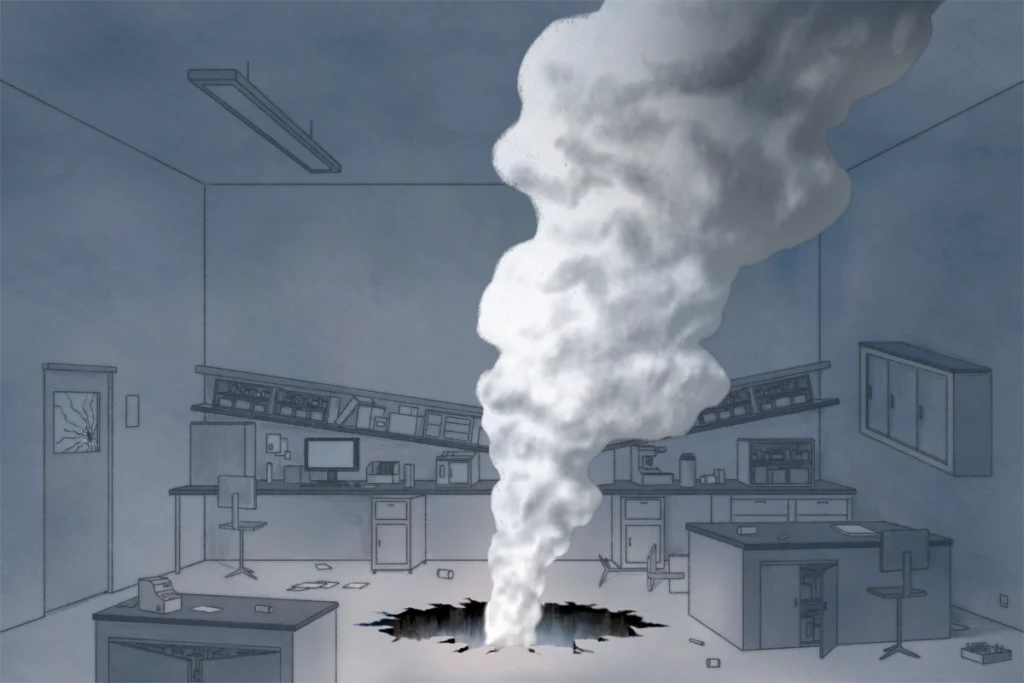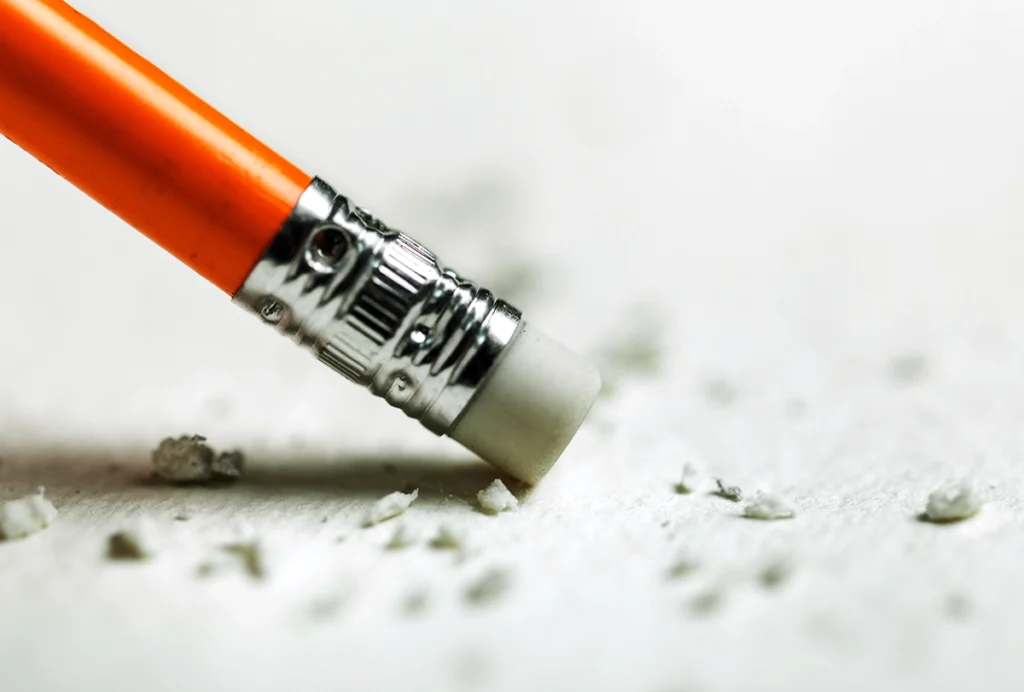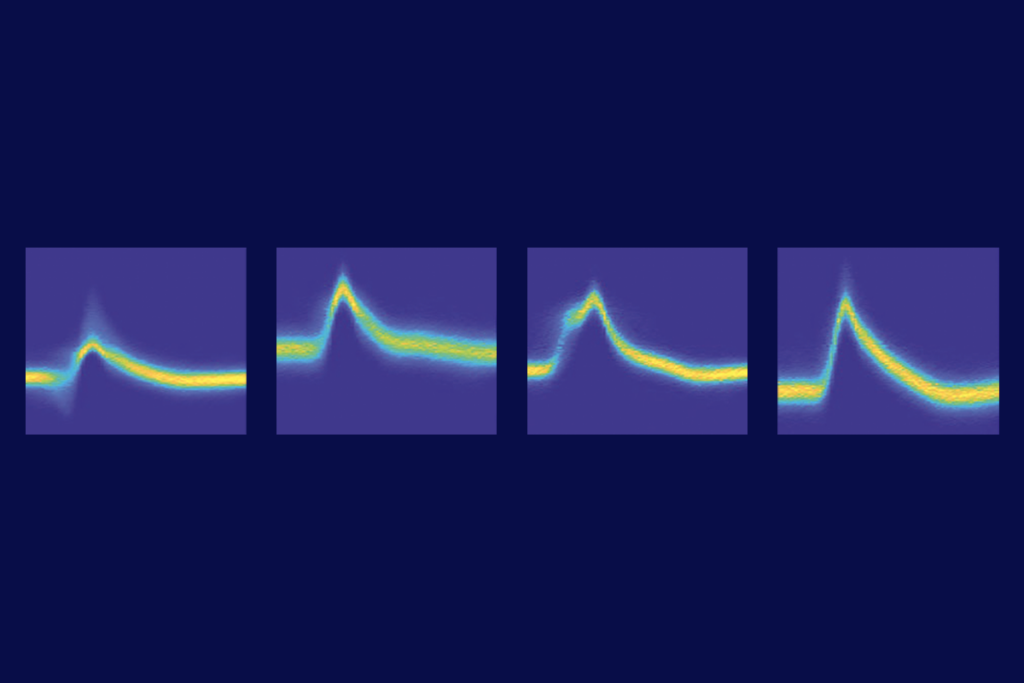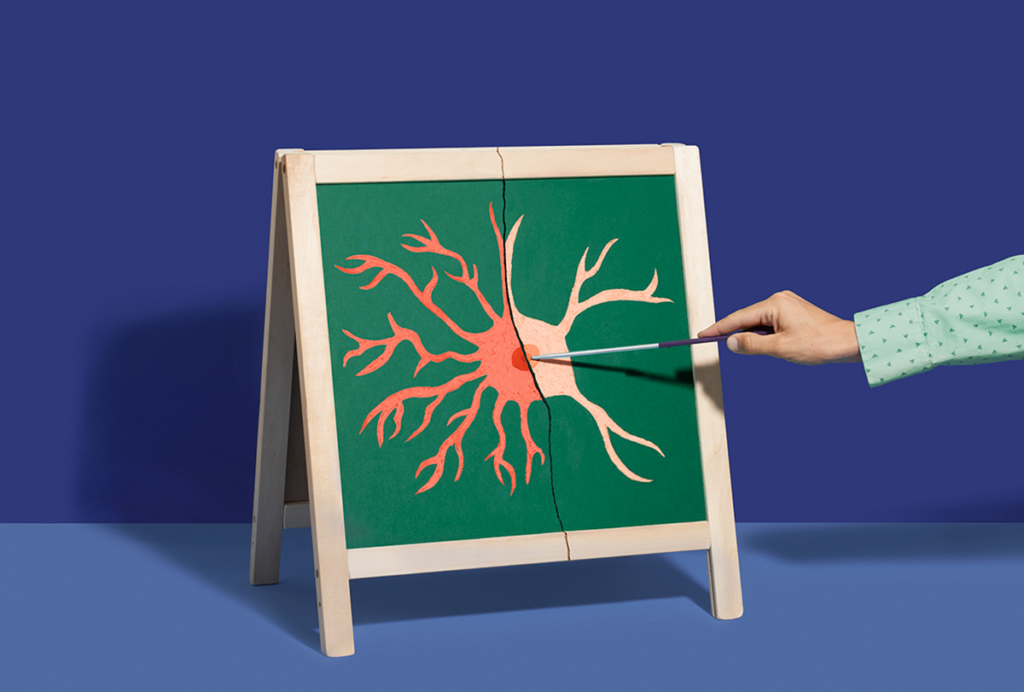Retraction
Recent articles
Exclusive: Issues with dozens of papers prompt inquiry into prolific stroke researcher
Two of John H. Zhang’s papers have been retracted, 19 have corrections, and 27 have expressions of concern.

Exclusive: Issues with dozens of papers prompt inquiry into prolific stroke researcher
Two of John H. Zhang’s papers have been retracted, 19 have corrections, and 27 have expressions of concern.
Psychedelics meta-analysis retracted after authors request ‘significant changes’
While working on a similar analysis last year, an independent researcher spotted inconsistencies in the now-retracted paper.

Psychedelics meta-analysis retracted after authors request ‘significant changes’
While working on a similar analysis last year, an independent researcher spotted inconsistencies in the now-retracted paper.
The Transmitter’s favorite features of 2024
Our chosen stories include tales about research misconduct in the lab, a neuroscientist working at the end of the world, and the passing of neuroanatomy’s “great-grandfather,” Harvey Karten.

The Transmitter’s favorite features of 2024
Our chosen stories include tales about research misconduct in the lab, a neuroscientist working at the end of the world, and the passing of neuroanatomy’s “great-grandfather,” Harvey Karten.
Former Columbia University psychiatrist committed research misconduct, says federal watchdog
Bret Rutherford, whose research was halted following a suicide in a clinical trial, falsely reported participant eligibility, according to the U.S. Office of Research Integrity.

Former Columbia University psychiatrist committed research misconduct, says federal watchdog
Bret Rutherford, whose research was halted following a suicide in a clinical trial, falsely reported participant eligibility, according to the U.S. Office of Research Integrity.
A scientific fraud. An investigation. A lab in recovery.
Science is built on trust. What happens when someone destroys it?

A scientific fraud. An investigation. A lab in recovery.
Science is built on trust. What happens when someone destroys it?
Second paper from lab of Nobel Prize winner to be retracted
The paper was corrected in May, but comments on PubPeer spurred further analysis.

Second paper from lab of Nobel Prize winner to be retracted
The paper was corrected in May, but comments on PubPeer spurred further analysis.
Task swap prompts data do-over for autism auditory perception study
The investigators retracted their paper after other researchers pointed out the error; the original team plans to redo the experiment, according to one author.

Task swap prompts data do-over for autism auditory perception study
The investigators retracted their paper after other researchers pointed out the error; the original team plans to redo the experiment, according to one author.
Faked results lead to retraction of high-profile cancer neuroscience study
An investigation found that the experiments required more animals than the scientists had purchased.

Faked results lead to retraction of high-profile cancer neuroscience study
An investigation found that the experiments required more animals than the scientists had purchased.
Anti-vax blogger retracts critique of study that debunked vaccination-autism link
The commentary contained misguided criticisms of the study’s statistical methods, the lead investigator says.

Anti-vax blogger retracts critique of study that debunked vaccination-autism link
The commentary contained misguided criticisms of the study’s statistical methods, the lead investigator says.
FDA describes ‘objectionable conditions’ at New York State Psychiatric Institute
The facility’s institutional review board failed to report a 2021 incident and “serious and ongoing noncompliance” by a principal investigator, according to a letter released by the federal agency this week.

FDA describes ‘objectionable conditions’ at New York State Psychiatric Institute
The facility’s institutional review board failed to report a 2021 incident and “serious and ongoing noncompliance” by a principal investigator, according to a letter released by the federal agency this week.
Explore more from The Transmitter
INSAR takes ‘intentional break’ from annual summer webinar series
The International Society for Autism Research cited a need to “thoughtfully reimagine” its popular online program before resuming it in 2026.

INSAR takes ‘intentional break’ from annual summer webinar series
The International Society for Autism Research cited a need to “thoughtfully reimagine” its popular online program before resuming it in 2026.
Null and Noteworthy: Neurons tracking sequences don’t fire in order
Instead, neurons encode the position of sequential items in working memory based on when they fire during ongoing brain wave oscillations—a finding that challenges a long-standing theory.

Null and Noteworthy: Neurons tracking sequences don’t fire in order
Instead, neurons encode the position of sequential items in working memory based on when they fire during ongoing brain wave oscillations—a finding that challenges a long-standing theory.
How to teach this paper: ‘Neurotoxic reactive astrocytes are induced by activated microglia,’ by Liddelow et al. (2017)
Shane Liddelow and his collaborators identified the factors that transform astrocytes from their helpful to harmful form. Their work is a great choice if you want to teach students about glial cell types, cell culture, gene expression or protein measurement.

How to teach this paper: ‘Neurotoxic reactive astrocytes are induced by activated microglia,’ by Liddelow et al. (2017)
Shane Liddelow and his collaborators identified the factors that transform astrocytes from their helpful to harmful form. Their work is a great choice if you want to teach students about glial cell types, cell culture, gene expression or protein measurement.